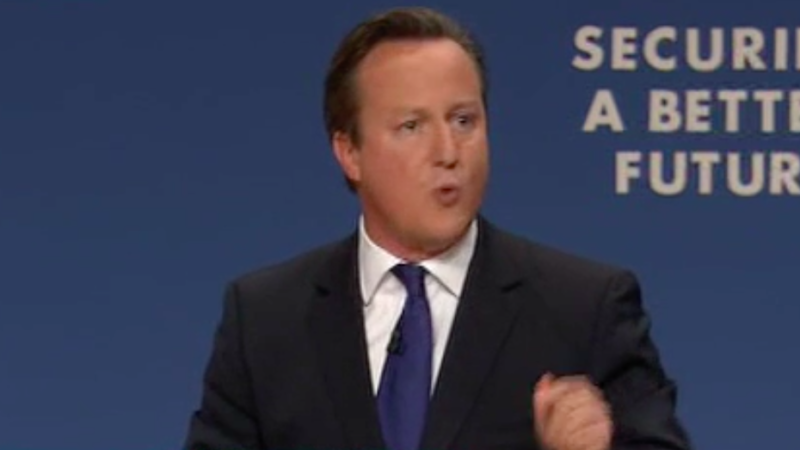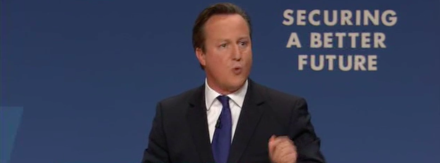
There can be few starker illustrations of the deep divide in the Conservative party over Europe than to compare the two set-piece speeches made almost simultaneously last week by David Cameron in Birmingham and Jonathan Hill in Brussels.

While Lord Hill went out of his way to emphasise to MEPs how much he valued dialogue, consensus, transparency and acting the common European interest, Cameron fell back on the combative tone that plays so well with Express-reading Tory voters and UKIP-waverers. As British Influence’s Peter Wilding put it:
“The rhetoric was bold and authoritative. This was the language of a man poised to clean out the Augean stables, sweep the moneylenders from the temple, flush out the federalists. For the Conservatives, it was their David ready to battle the Goliath of a Brussels hostile to everything he and the Brits hold dear.”
The problem with this rhetoric is that it’s just that – rhetoric. And Wilding professes puzzlement about why Cameron feels the need to repeat that he “won’t take no for an answer” when really he’s pushing at an open door. After all, our European allies have already agreed to a programme of reform that’s exactly what Cameron claims to want.
Yet, for some reason, this truth must not be spoken. Better to be seen as defiant against the odds and isolated against the continent rather than resolute for leadership and engaged with allies. Stranger still, it’s apparently better to tell the British people, media and politicians that the UK has not yet set out its demands, when there they are in black and white ready for action.
But I don’t think this is so strange. Read between the lines of this or any other speech by the prime minister on Europe, and you realise that the only people who actually won’t take ‘no’ for an answer – or ‘yes’, for that matter – are the hard-right eurosceptics on his own backbenches.
And in that regard, he faces an unsolvable dilemma. The Tories’ eurosceptic wing is threatening, self-assured, and wantonly destructive. It is committed to immediate denunciation of whatever changes are made at European level, no matter how sensible and beneficial. It wants the entire setup to implode, and Britain to be on the sidelines when it happens. Its agenda is nothing less than national suicide.
Faced with the looming fragmentation of his own party, Cameron faces a tactical imperative. He must hold things together until after the next election, or face catastrophic defeat. So he’s now playing out a gamble which underpins his entire approach to Europe: he must keep inventing difficulties, keep talking the language of combat, and desperately conceal the fact that real reform is already underway. And if that buys him some space to push for changes that really would be unpopular with our allies – such as rowing back on the social chapter or weakening employment rights – then so much the better for his agenda.
It’s a sham, of course, and when it’s exposed all hell will break loose. But Cameron’s gamble is simply that he can postpone the inevitable meltdown until after next year’s general election.
Richard Corbett is deputy leader of the Labour MEPs and a Member of the European Parliament for Yorkshire & Humber.




More from LabourList
Tom Belger column: ‘Why is Labour making migrant exploitation easier?’
Ashley Dalton resigns as health minister for cancer treatment
Paul Nowak column: ‘Labour must focus on the basics’